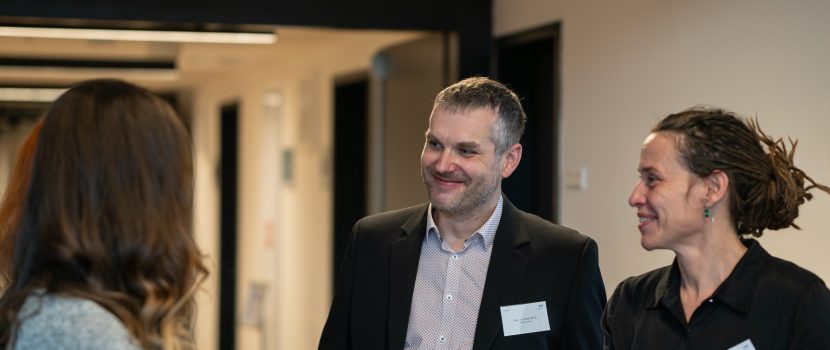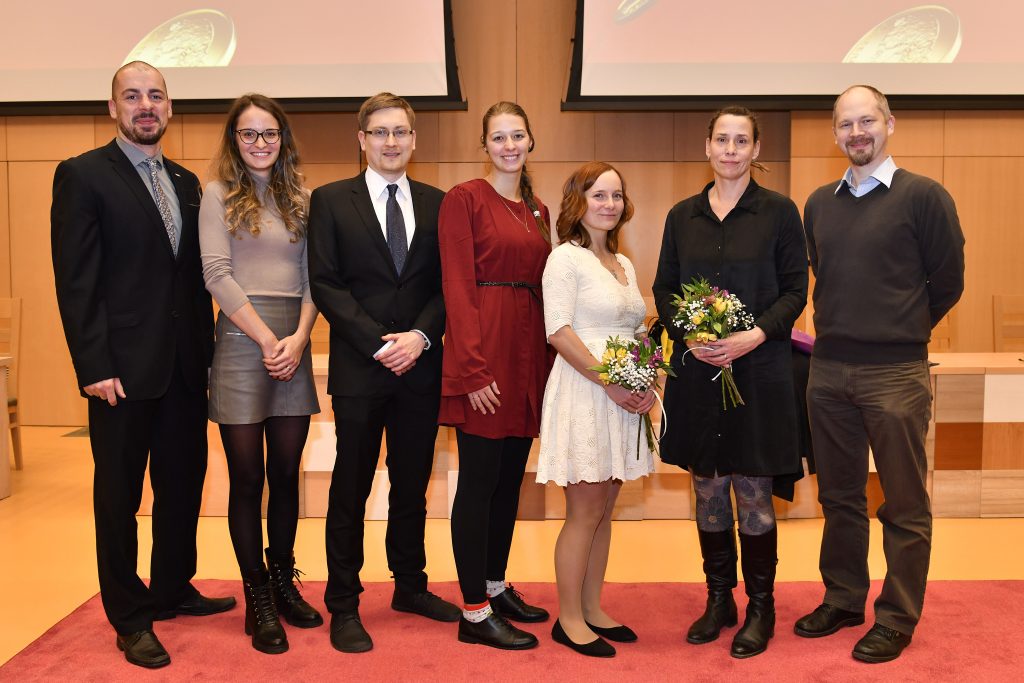
Jan Malý: “We are no longer merely a regional university”
An interview with Jan Malý, founder of the Centre for Nanomaterials and Biotechnology (CENAB), which is one of UJEP’s most prominent research centres. News of its activities and research is spreading through the media and the scientific community even beyond the borders of the Czech Republic. CENAB is growing — and the university is growing with it.
Let’s take an unconventional approach and start from the present. Could you introduce today’s CENAB to the readers and explain its significance beyond UJEP?
The Centre for Nanomaterials and Biotechnology is, in essence, a very young part of UJEP’s Faculty of Science. It was established in 2022 by separating from the Department of Biology and merging it with the Ústí nad Labem Materials Centre. This created a link between two teams that have been cooperating for nearly two decades and whose research themes and participation in the interdisciplinary Applied Nanotechnology study programme had already overlapped. Although it is still too early to evaluate the wider significance of CENAB, I believe it is already possible to perceive its growing potential, particularly in the field of research activities. CENAB is currently participating in a total of 12 projects with a financial volume exceeding 25 million CZK per year. From my perspective, it is crucial that we are managing to further develop the centre, particularly by recruiting top researchers with international experience, mainly thanks to project funding. This provides a solid foundation for further growth and for increasing the quality of our research.
If we were to go back in time, what personally brought you to UJEP?
UJEP is my home university. I studied to become a teacher, specialising in biology and chemistry. Even during my studies, I had the opportunity to “get a taste” of science at the Institute of Microbiology of the Czech Academy of Sciences, where I worked on my thesis at the Department of Phototrophic Microorganisms at its branch in Třeboň. I was very fortunate — and I think this is crucial for the professional careers of future academics — to meet a wonderful mentor and remarkable individual, Professor Jiří Masojídek, who later also supervised my doctoral studies at the University of South Bohemia in České Budějovice. During my studies, I had an opportunity to meet many inspiring individuals and spend a long-term research stay in Italy, where I worked on developing electrochemical biosensors at the Institute of New Technologies in Rome under Dr. Roberto Pilloton. I believe these positive experiences confirmed my decision to pursue an academic career. For this reason, I later accepted an offer to work at UJEP.
What was your path towards founding CENAB, and can you recall a particularly important moment along the way?
Before founding CENAB, I spent about 10 years as the Head of the Department of Biology. I believe I managed to develop the department in the right direction: with the help of colleagues, I accredited new study programmes, built new facilities in the form of the Centre for Biological and Environmental Fields (CBEO), established several modern laboratories, and strengthened the department’s staff by recruiting experts from institutes of the Czech Academy of Sciences. However, in recent years, I felt I had reached the limit of what was possible within the department’s structure. For the further development of experimental research, a more specialised independent unit was needed. I greatly appreciate the understanding and support of the then leadership of the Faculty of Science, who agreed with my proposal and intention to establish a new centre.
Do important collaborations contribute to the growth of the centre?
I think one of the goals in founding CENAB was to break the — unfortunately still persistent, and in my opinion distorted — perception of UJEP as a university of a relevance restricted to the region, with little to offer in experimental research. I believe we are gradually succeeding. We are developing contacts, for example, with the Technical University of Dresden, both through doctoral student placements and through the preparation of joint research projects. In our laboratories, you will encounter a range of nationalities, and English is increasingly becoming the common language of communication. The road is not easy, but it is one we must strive to follow. For this reason, we seek to collaborate through joint research projects and contractual research with several industrial partners, particularly in the fields of nanotechnology and biotechnology.
What do you consider unique about CENAB?
Firstly, the colleagues. I believe we have built a team of motivated collaborators who respect each other, share a common interest, and find joy in their work — and that, I think, is the most important thing. Naturally, everyone is an expert
in a particular area, and these areas complement each other very well.
In the team, we have, for instance, biophysicists, molecular biologists, and nanotechnologists. What pleases me is the broad age structure, which makes the team stronger. The second pillar of our uniqueness is the thematic focus of the research and the strong emphasis on interdisciplinarity. It is precisely these original topics and approaches that open doors to new collaborations and projects. The third pillar, in my opinion, is the modern and competitively equipped laboratory infrastructure that we have managed to establish in the new Centre for Technical and Natural Sciences building in recent years. Some laboratories are fairly unique within the Czech Republic (for instance, so-called cleanrooms for the preparation of microfluidics). Personally, I also see our workplace as friendly and open to anyone who enjoys science, discovering the unknown, or simply “tinkering” with ideas.
Interview by Anna Hrochová and Michaela Kocholatá
